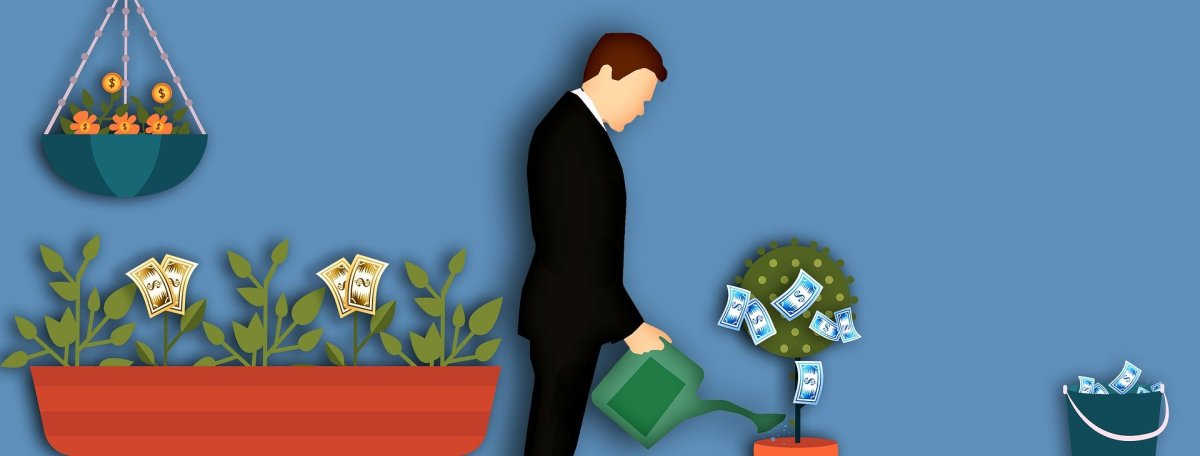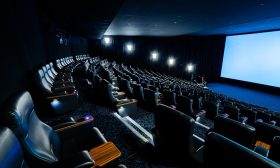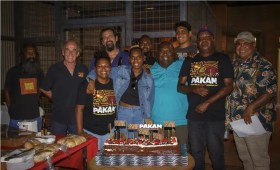Tax deductions! As the end of the financial year approaches, specialist accountancy Hnry has revealed that the average sole trader misses out on over $5500 in unclaimed expenses every year. Research from Hnry, which services contractors, freelancers and the self-employed, shows only 64% of sole traders – including freelance photographers, graphic designers and TV/film production crew members – claim all of the business expenses to which they’re entitled.
Of those that don’t claim, 33% said it was because they are unsure of what they can/can’t claim, and 35% explained that it’s due to the hassle of having to deal with financial administration.
Around 80% of people in the arts work on a freelance or self-employed basis.
To help this cohort of Australian creatives prepare for EOFY (end of financial year) business expenses, Hnry offers seven less well-known tax deductions:
- Custom-bound client portfolios: Creating custom portfolios for presenting your work to high-end clients. This could involve hiring a bookbinder to create bespoke leather-bound portfolios.
- Inspiration board supplies: Purchasing an array of unconventional materials for creating inspiration boards, such as rare fabrics, vintage magazines, or custom pins and fasteners. This is a creative expense that supports your design process.
- Professional consultant services: Hiring a creative consultant to collaborate on your next big project.
- Subscription to creative journals: Subscribing to creative journals or magazines that provide insights and training for your work.
- Themed creative workshops: Hosting themed workshops in unique locations, such as a “Design Your Own Comic Book” workshop in a historic library, or a “Photography Techniques” session in an old theatre. The costs for venue hire, materials and guest instructors can be claimed.
- Interactive online courses: Enrolling in interactive online courses that explore new creative techniques. These courses often provide skills and professional development.
- Creative props for shoots: Investing in props for photoshoots to differentiate your portfolio and provide clients with distinctive looks.
Hnry has also revealed common expenses self-employed creatives can and can’t claim at tax time.
Top 5 most common claimed expenses by self-employed creatives
- Bank fees: Deductible for work transactions, excluding account-keeping or overdraft fees.
- Equipment purchases: Deductible if essential for work (for example, mobile phone, cameras, laptops, memory cards). If the equipment is for both business and personal use, you can only claim the business portion of the cost.
- Subscription fees: Any recurring subscription costs for business-related products (for example, recurring software costs, relevant online magazines, licensing fees).
- Travel expenses: You can claim any costs associated with an overnight trip for work, provided the trip directly relates to earning income.
- Cost of goods sold: Deductible for materials (for example, canvases and photo frames) used in work or services provided.
Top 5 expenses self-employed creatives can’t claim
- Digital detox retreats: Although beneficial for creativity, the costs of attending digital detox retreats are not tax-deductible expenses.
- Desk toys and gadgets: While they may enhance creativity and relaxation, the costs of desk toys or gadgets are not tax-deductible.
- Personal development courses unrelated to business: Courses taken for personal interest, such as painting classes, are not eligible for tax deductions.
- Personal vehicle expenses for non-business use: Expenses related to personal vehicle use, such as commuting or leisure travel, are not tax-deductible.
- Home décor and luxury office furniture/equipment: Unless exclusively for business use, costs for items such as artwork, high-end coffee machines and massage chairs aren’t deductible.
Read: Tax Time Tips
An example of freelancer tax claims
Nicholas Battushig, is a videographer and photographer from Sydney. He is planning to claim his motor vehicle expenses, subcontracting fee and equipment purchases. He’s also looking to claim research and development tax deductions, which includes business coaching sessions, video production company courses and attending seminars and workshops.
The cost of living crisis has made Battushig much more ruthless when it comes to his tax deductions – ‘if something is claimable, I make sure to claim it’.
‘About 30% of my floorspace at home serves as my home office, which I recently learned allows me to claim 25% of my rent in my tax deductions since I’m a freelancer. It’s been a huge help. I purchased a new car in this financial year, and since I use it to get to and from work locations, I’m able to claim a percentage of my petrol costs, as well.’
Battushig once tried to claim prop clothing that was utilised for a shoot in his tax deductions, but as he is not a production designer, he was unable to claim this as an expense.





